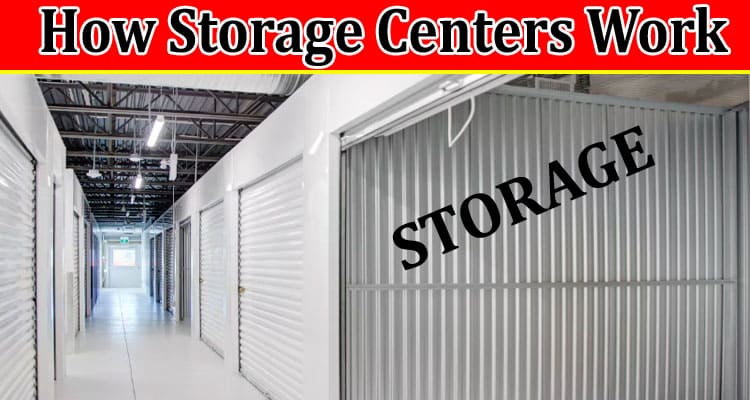A storage center offers businesses and individuals a space to store their items for a specified period. Also known as storage units, the centers have varied amenities to keep items secure and in good condition. Here is how storage units work:
Types of Storage Units
Traditional self-storage facilities are indoor units with sizes such as large rooms and small lockers. Climate-controlled storage maintains a consistent temperature and humidity level, shielding sensitive and valuable items from extreme temperature changes and moisture. Such units are useful for storing electronics, artwork, antiques, documents, wine, and delicate furniture.
Vehicle storage units cater to the storage of vehicles, including cars, motorcycles, boats, recreational vehicles, and aircraft. Some facilities offer outdoor parking spaces, while others provide indoor storage for reliable protection. Business storage facilities offer storage solutions for companies to keep excess inventory, office equipment, and records.
Access To Stored Items
A storage center has set hours during which customers can enter the facility to access their storage units. Some facilities allow access around the clock, while others have more limited access hours. Most self-storage units are designed for drive-up access, meaning you can drive their vehicles right up to the entrance of your unit.
Drive-up access can allow you to load and unload bulky items directly from a car or moving truck easily. Some storage facilities offer wide driveways, loading docks, and elevators for multi-story buildings to enhance accessibility. If you need emergency access, a notice or approval from the facility management can help you retrieve your items.
Security
Many storage facilities prioritize safety by having various security features in place. Surveillance cameras are installed strategically throughout the facility to monitor activity inside and outside the buildings. Onsite staff and security personnel patrol the premises, enhancing security and deterring potential theft or vandalism.
Exterior lighting and illumination within hallways and common areas help boost visibility throughout the facility and deter thieves. Some centers have sturdy perimeter fencing, which acts as a physical barrier to anyone without authorized access. Smoke detectors, fire extinguishers, and fire sprinkler systems offer additional safety within storage units. Electronic gates, keypad entry systems, and alarms also boost security in these facilities.
Payment and Charges
When you rent a storage unit, the facility bills you every month, but the cost can depend on the location, size, and amenities. Climate-controlled units with features like drive-up access can be pricier than traditional storage units. Larger units also cost more than smaller ones since bigger spaces are expensive to maintain.
Some storage facilities require a security deposit, which is refundable upon move-out if you leave the unit in prime condition. In other cases, you could pay a one-time administrative fee once the rental agreement is initiated. Upon renting the storage unit, pay on time to avoid late payment charges.
Maintenance and Inspections
Storage facilities conduct routine inspections and maintenance to check if the systems function correctly. This includes checking surveillance cameras, alarms, lighting, and access gates for potential issues. The facilities also implement a pest control program to prevent infestations of rodents and insects that could damage customers’ belongings.
Staff at the storage centers clean and tidy the hallways, driveways, and access points. When you rent a storage unit, the facility keeps the unit clean and free from debris or any items left behind by the previous renter. Once you rent the unit, you are responsible for maintaining cleanliness inside that unit.
Choose a Reliable Storage Center
If you are downsizing, renovating your home, or moving away for some months or years, storage units can be a good option. Choose storage facilities with enough space and security features to keep your items safe. The units may also have shelves, pallets, and other storage solutions to organize your items.





